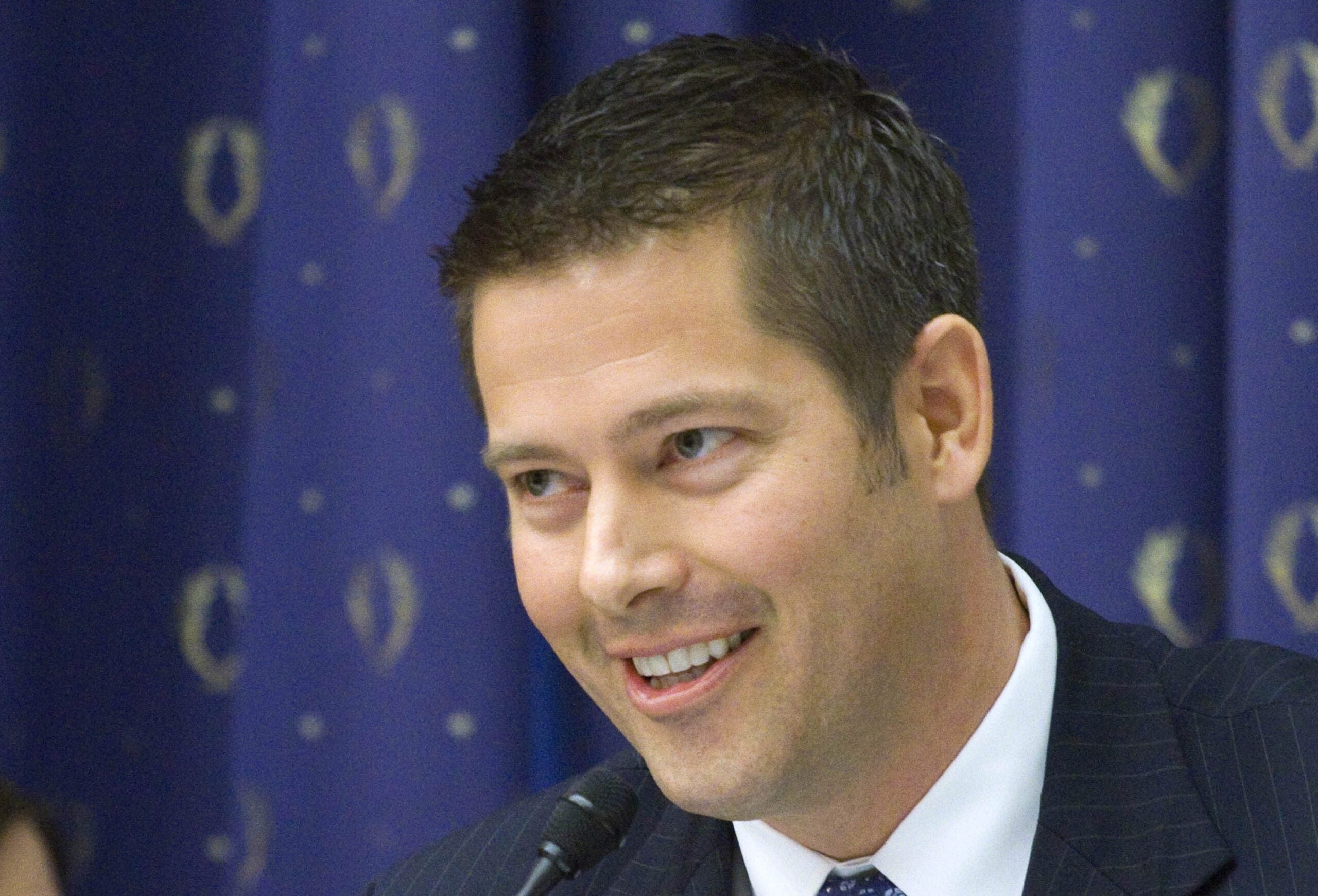One northern Wisconsin congressman has sparked criticism for his comments about differences he says exist between Islamic State-related and other violent extremists.
In an interview with CNN this week, U.S. Rep. Sean Duffy, R-Wausau, said there’s a difference between acts carried out by extremists inspired by IS and attacks by white extremists, such as the church shooting that killed nine African-American parishioners in 2015 in South Carolina.
CNN’s Alisyn Camerota asked Duffy his opinion of the Charleston church shooting carried out by Dylann Roof, saying, “How about that? That doesn’t matter?”
News with a little more humanity
WPR’s “Wisconsin Today” newsletter keeps you connected to the state you love without feeling overwhelmed. No paywall. No agenda. No corporate filter.
To which Duffy replied, “No, it does matter. It does matter. Look at the good things that came from it. Nikki Haley took down the Confederate flag. That was great.”
Duffy went on to say Camerota’s examples of the Quebec City and Charleston shootings don’t have a constant thread that underlies such attacks.
But, Charles Kurzman doesn’t see it that way. Kurzman, a sociology professor at the University of North Carolina in Chapel Hill, authored the 2016 recent report “Muslim-American Involvement with Violent Extremism.“
“I don’t think there’s that much of a difference between the mobilization of Muslim extremists and the mobilization of right-wing extremists,” Kurzman said in a phone interview Thursday. “In both cases, we’re talking about relatively small numbers, fortunately. In both cases, there’s an active online community where propaganda and violent ideologies are expressed and shared and posted.”
According to Kurzman’s report, 46 Muslim-Americans were associated with violent extremist acts last year – a 40 percent drop from the year before. Kurzman points out that Muslim extremists were responsible for 123 deaths of the 240,000 murders since 9/11 in the United States.
In a statement issued Thursday from Duffy’s office, the congressman said the CNN anchor “ridiculously compared radical Islamic terrorism to the randomness of getting struck by lightning.”
The statement reads:
“ISIS is a well-organized, well-funded terror group that occupies large swaths of land, has a functioning government, and an effective propaganda machine that inspires people around the world to commit terrorism. They have infiltrated the refugee population in Europe and have promised to do the same in the United States. The number one job of the President and Congress is to keep Americans safe. The massacre of Christians praying at Emanuel A.M.E. Church is heartbreaking beyond words. Dylann Roof is a deranged racist, but he did not belong to an organized, global terrorist group that has promised to infiltrate our refugee program. The government should continue to monitor hate groups like the KKK and prevent other domestic terror threats.”
Ibrahim Hooper, spokesman for the Council on American-Islamic Relations (CAIR), said comments similar to those of Duffy highlight the views of some on the political spectrum that a violent act can’t be terrorism unless it’s carried out by Muslims.
“These are never regarded as acts of terrorism. They’re either regarded as random violence or some kind of violence carried out by individual, unbalanced people. That’s what we see,” Hooper said.
“Whenever a Muslim commits some act of violence, it’s labeled immediately as terrorism, and it’s added to the list that is then regurgitated next time somebody who happens to be Muslim commits an act of violence. But, there’s no similar list for any other group whether it’s neo-Nazis, the KKK or right-wing extremists, militia members who all have a history of violence in America.”
David Schanzer, director of the Triangle Center on Terrorism and Homeland Security, said attacks by shooters like Roof may seem like “one-offs,” and differences do exist between various forms of violent extremism. However, he noted they are both driven by ideologies whether it’s religious or racial hatred.
“While it’s true that the perpetrators are mostly individuals or pairs of individuals, that doesn’t mean that they don’t get inspiration and support from organizations that are right here in America,” Schanzer said.
Schanzer cited figures from the Southern Poverty Law Center, which claims to monitor more than 800 hate groups in the U.S.
Wisconsin Public Radio, © Copyright 2025, Board of Regents of the University of Wisconsin System and Wisconsin Educational Communications Board.





